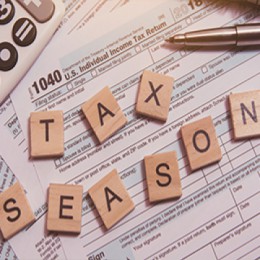
Essentials for Budget Flexibility: Building Your Emergency Fund
One of the key pillars to financial success is having an emergency fund in place. In this blog post, we'll explore the essentials of emergency funds and why every household should prioritize building one.
Think of your budget as a well-constructed house, with each expense and financial goal meticulously planned and laid out like the framework and walls. Now, imagine your emergency fund as the sturdy foundation on which the entire house stands. The foundation of a home is there to help weather unforeseen challenges, just like your budget requires the stability of an emergency fund. It helps protect your goals from unexpected financial issues. Just as a house without a solid foundation is vulnerable to falling apart, a budget without an emergency fund is at risk of collapsing under the weight of sudden financial hardships.
An emergency fund is savings specifically designated to cover unexpected expenses or financial emergencies. Whether it's a sudden medical bill, car repair, or unexpected job loss, having a financial safety net provides peace of mind and protects your family's financial well-being.
What are the Essentials of an Emergency Fund?
The Size of Your Foundation:
It would be best if you had a large foundation to support your whole home. Experts say that a good rule of thumb is to save three to six months’ worth of living expenses in your emergency fund. This ensures that you have an adequate cushion to navigate through the unexpected without compromising your financial stability.
Available, Yet Out of Mind:
An emergency fund should be easy to get to when needed. But it’s crucial to think, out of sight out of mind – keeping it separate may help ensure that you avoid the temptation to dip into it and spend it on non-emergencies.
Regularly Add to it:
Setting up a savings plan to contribute to your emergency fund regularly can be an easy win to reach your goal. Even small, consistent contributions can add up over time and make a significant difference in reaching your savings goal in a timely manner.
Don’t Make it Risky:
Don’t treat your backup money like an investment. Keep these funds in a liquid, low-risk account, such as a savings account or money market account, where you can access them quickly without worrying about any fluctuations.
Reassess and Adjust:
Life is changing every day, so your emergency fund should be too. Regularly reassess your expenses, family situation, and any other factors that may impact the amount your emergency fund should be, then adjust accordingly.
Reasons Every Household Needs to Have an Emergency Fund
Reduced Stress:
Emergencies come up. Whether it’s vehicle maintenance, household issues, a sudden death, the loss of a job, etc., in those times of fear and strain, don’t let your finances be an added weight to your already heavy load. Having a financial cushion in place brings peace of mind.
Maintain Your Goals:
Without an emergency fund, unexpected expenses can derail your progress toward your other financial goals. An emergency fund ensures that you stay on track.
Avoid Debt with Financial Security:
Individuals without an emergency fund may resort to credit cards or loans, leading to high-interest debt which only adds to the burden. Your emergency fund can act as a financial buffer, that lifts some of the hopelessness away. It provides a safety net, allowing you to navigate through unexpected financial setbacks without adding to debt or depleting your long-term savings.
Building and maintaining your emergency fund should be a top priority and a step toward achieving financial security. Build your budget with the best foundation possible, with a little help and guidance from CSE.
Interested in diving deeper, but in person? Check to see when our next workshop is HERE. We go over topics such as budgeting, credit enhancement, first-time homebuyers, getting out of debt, and more!











0 comments